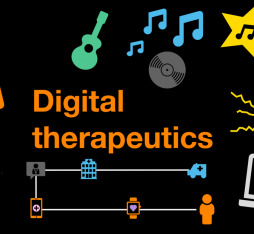Women are underrepresented in healthcare research and clinical trials. This gender gap contributes to large healthcare inequalities, in particular because we know less about the disorders that affect women than we do about those that affect men.
FemTech companies could help healthcare to move forward thanks to their innovative, inclusive approach geared towards patient empowerment.
Endometriosis (a chronic gynecological disorder characterized by the abnormal presence of endometrium outside the uterine cavity), for example, takes an average of seven years to be diagnosed and remains unknown to healthcare workers and women alike. Yet it affects one in ten women in France, where it is the primary cause of infertility according to the French government, which is attempting to set up a national strategy to combat this illness.
FemTech (the abbreviation of “female technology”) companies aim to fill this gender gap by developing innovative products and services in various areas of female healthcare, including in taboo areas such as sexuality, periods, or the menopause.
FemTech in detail
Imagined in 2016 by Ida Tin, cofounder of the period-tracking application Clue, the term “FemTech” refers to startups seeking to address women’s healthcare and wellness needs using new technologies (healthcare applications, connected mobile devices, telemedicine, artificial intelligence, etc.).
The solutions developed aim to improve healthcare access and quality or the sharing of information, for illnesses and conditions that are specific to women (such as gynecological illnesses) or diseases concerning the whole population but that affect women disproportionately or differentially (such as cardiovascular diseases).
The areas targeted are reproductive health, pregnancy, prenatal and postnatal care, pelvic and perineal healthcare, menstrual health, sexuality, general healthcare and wellness, the menopause, etc.

A growing market
Despite being potentially relevant to half the population, FemTech companies have historically had trouble raising funds from investors compared to other HealthTech (the healthcare technologies sector) startups. But the trend seems to have reversed over the past two years, with FemTech becoming more and more attractive to investors and accelerators.
In August 2021, Maven Clinic, a virtual clinic based in the United States offering fertility, adoption, surrogacy, pediatric, etc. services, became the first FemTech unicorn (a company valued at over one billion dollars) in the world. In June 2022, British startup Parla, a platform offering virtual support services, in particular following a miscarriage, was acquired by Holland & Barrett, a multinational chain of health food and wellness product stores.
2021 saw the launch of several accelerators dedicated to FemTech companies in the startup phase. Based in London, the FemTech Lab was presented as the first acceleration program of its kind in Europe. In France, Station F, the startup campus created by Xavier Niel, launched the FemTech Program, which is now on its third batch.
The growth of FemTechs, most of which are founded by women, is also driven by a double truth: an increasing number of venture capital companies as well as support and acceleration programs are now interested in female entrepreneurs on the one hand, and in the digital health sector on the other. Also, the global FemTech market is set to exceed 60 billion dollars by 2027 (compared to just under 10 billion in 2019), with an annual growth rate of 15.7 %, according to an Emergen Research report.

A brief overview of FemTechs
In just a few years, the market has grown to cover a wide range of solutions, from the diagnosis of endometriosis (Ziwig) to breast cancer screening (b-rayZ) through fertility tracking applications (Daysy) and the reduction of menopausal symptoms (Omena).
Among the most well-known, it is worth mentioning Ava, a connected bracelet that detects fertility, and of course Clue, created in 2012, which now has over 10 million users around the world. With series C funding of 82 million euros in 2021, Elvie signed one of the biggest FemTech rounds in Europe. The British startup commercializes two smart products aimed at women: a pelvic floor exerciser and a breast pump.
On the French side, the FemTech France association, founded in 2022 by three female entrepreneurs to support the development of innovative projects in the area of women’s healthcare, lists over 81 startups claiming to be FemTechs. A quarter of these are dedicated to reproductive health, and nearly half offer B2C products, meaning they put businesses in direct contact with consumers.
An example is Lucine, which develops Digital Therapeutics, or DTx, to relieve chronic pain. The young startup from Bordeaux has developed an application that measures pain intensity during an attack by using facial recognition and offers to respond to it in virtual reality with sound and light stimulations. The Nabla application enables women to talk to general practitioners, gynecologists, midwives, etc. through video consultations or by chat.
Among the startups accompanied by Station F, it is worth mentioning Liberare (ex-Intimately), an inclusive underwear brand for disabled women; My S Life, a community space dedicated to sexual and intimate healthcare; or Sonio, an artificial intelligence for prenatal screening and diagnosis.

Beyond female healthcare
Beyond female healthcare, FemTech companies could help the healthcare sector as a whole to move forward thanks to their innovative, inclusive, user-friendly approach that is geared towards patient empowerment. McKinsey consulting firm, for example, mentions the following benefits:
- Improving care delivery, thanks to innovative clinics (such as Kindbody), virtual clinics, or prescription delivery services (The Pill Club).
- Supporting the emergence of self-care, thanks to trackers and other wearables, as well as at-home diagnostics that help women take greater charge of their health and related data.
- Improving diagnoses: by tackling unmet medical needs, such as endometriosis diagnosis, FemTechs are exploring new screening methods and pushing back the boundaries of science.
- Delivering more inclusive care, thanks to solutions tailored for subpopulations, such as transgender people.
Sources :
FemTech Companies Closing the Gender Health Gap
The dawn of the FemTech revolution
FemTech: Digital Revolution in Women’s Health (infographics)
FemTech: les start-up françaises peinent à se financer [FemTech: French startups are struggling to get funding]











